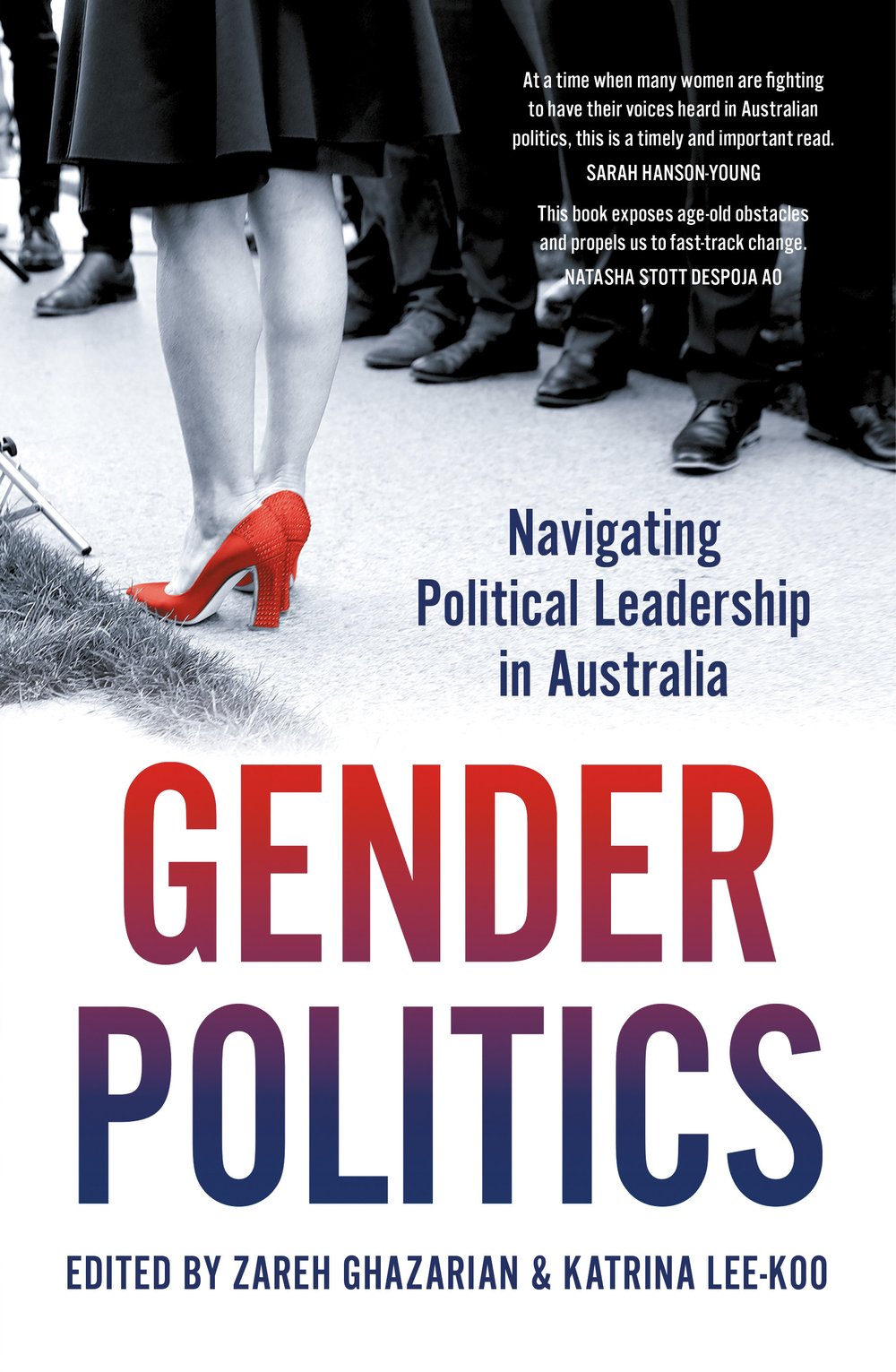It's time that we had a conversation about gender and political leadership. Even though historically Australia has been a world leader when it comes to providing women with political rights, more can, and must, be done. Over the last year, Australian politics has been characterised by allegations of rape, bullying, sexual harassment, and a toxic culture in the corridors of power.
Gender Politics: Navigating Political Leadership in Australia aims to kick start a new, national discussion about how we can make sensible changes to strengthen our democracy.
This book brings together the cutting-edge research of Australia’s prominent academics and commentators working on these issues in short and accessible chapters. It’s designed to encourage open, honest, and evidence-based debates within our community on these important issues.
This collection of essays is not a response to the events of the past few months, but rather was written in anticipation of them. For us, it has been clear for some time that the nation needs to address the gender politics that animate — and at times undermine — Australia’s political leadership culture and practices.
In the past few years we have seen slow movement on efforts to achieve gender parity across government. But we have also seen hostile responses to the idea of quotas and reforms of candidate selection processes for elections. While accusations of sexist and unnecessarily aggressive language in Parliament continue, there has been little reform in terms of making parliament a family friendly workplace. Moreover, we continue to see a lack of diversity in leadership positions in the House of Representatives and in the Senate.
This book works with the premise that gender politics pervades all aspects of our national politics. We focus on how this operates in a number of ways:
First, gender politics shapes how we see “legitimate” leadership in Australia. For example, Scott Morrison’s legitimacy as a leader is – in some ways – tied up in how he performs his masculinity. As Carol Johnson argues in the book, his “daggy dad” persona is part of his protective masculinity that unpins his leadership style and its legitimacy.
Second, gender politics plays out in our language, our public discourses, and how they shape our political debates. Seven years on from the famous misogyny speech, Sarah Hanson-Young successfully sued David Leyonhjelm in defamation court over the latter’s sexist comments to her on the floor of the Senate. In interviews former Prime Minister Julia Gillard has reflected upon the vitriol she experienced as leader – and noted the apologies she has since received from those in the media, in politics and the general public who were complicit or failed to act. In light of this she argues that we – as a public – are awakening to there being such a thing as sexism in politics.
Third, gender politics is in the structures that govern access to political leadership. Morrison’s 2019 election catch-cry that “those who have a go will get a go” cover overs the deep, structural discrimination that exists with regards to political leadership. For women political candidates in particular, this might be the difficulty of managing a political career while also being expected to undertake caring responsibilities at home. Or, it might be having to deal with misogynist cultures in parliament or on social media. Or, it may be getting a “fair go” when it comes to pre-selection and support for campaigns.
Finally, gender politics is evident in our political culture. The recent experiences of Brittany Higgins demonstrate this. The circumstances that led to the alleged assault, the response of political leaders, the apparent lack of process and protection for staff, the claim of a political cover-up, and the fact that Ms Higgins felt that she was pushed out of her career all suggest deep problems within the political culture when it comes to the treatment of women.
This collection argues gender politics pervades all aspects of political leadership. For the general public it is in the ways we think about what makes a strong leader, in how we learn about them in newspapers and on social media and TV, how we elect them, and how we evaluate their persona and their performance. For the leaders themselves, they must navigate gender politics throughout their careers, and in the structures, institutions and cultures that they operate in.
In short, gender politics can have a profound — and sometimes hidden — impact upon political leadership in Australia. Our book Gender Politics, is a call for an open conversation about this impact, and to work towards practical solutions for better government and policy outcomes.
Zareh Ghazarian's and Katrina Lee-Koo's edited book Gender Politics: Navigating Political Leadership in Australia will be published by NewSouth in May 2021.



